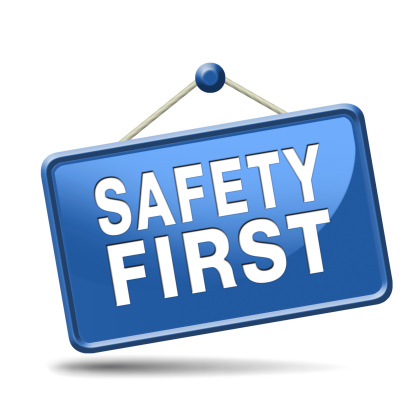 Food safety is a constant topic in the news. Recalls, bacterial threats never cease. Not long ago, the FDA, criticized for not overseeing food safety, created a brand new job: assistant commissioner for food protection.
Food safety is a constant topic in the news. Recalls, bacterial threats never cease. Not long ago, the FDA, criticized for not overseeing food safety, created a brand new job: assistant commissioner for food protection.
Clearly one commissioner isn’t enough. These days, with imported items, pesticide use and processed foods, consumers have to deal with a lot of “scares” like E. coli in spinach and salmonella in many things. With that in mind, here are 10 ways to keep you and your family safe in the kitchen.
1. Know where food comes from: It’s easiest to research local farmers. Head to a farmer’s market for local, fresh produce, meats and cheese and you can actually have a conversation with farmers. Ask them about their operation. For imported items, do some research and find out where
they are from.
2. Clean: The kitchen, that is. Wash plates, utensils, pots and pans in soapy hot water so bacteria won’t survive. Do the same for countertops, cutting boards and the fridge. Toss sponges, rags and dishcloths in the washing machine each week. Consider sanitizing the kitchen every so often. Mix a teaspoon of bleach with a quart of water and scrub your cutting boards, counters, stove, and kitchen sink.
3. Think perishable: In the supermarket, leave perishable foods until last, so they don’t go bad. Get your cans, bottles and boxes of food first. Plus, make grocery shopping the last item on your to-do list before you go home.
4. Pack properly: In the supermarket, make sure everything is kept separate from meat, seafood and poultry. Consider a cooler (with ice) for frozen or perishable items for the trip home.
5. Inspect food: Eggs should come un-cracked. Veggies and fruit should be un-bruised. Lids shouldn’t be loose. Jars and cans should lack dents and cracks. Meat, fish and salads at your supermarket should be sold in a clean area.
6. Meat safety: Thaw meat in the fridge. Cook poultry and meat thoroughly. Consider a meat thermometer to gauge temperature when cooking.
7. Store safely: Put perishable or frozen foods away ASAP. Don’t store food near cleaning products and chemicals. Leave produce on the counter so it can’t be damaged. Seal leftovers in tight containers and keep three days only.
8. Greens best fresh: Salad greens are best bought fresh. Most packaged lettuce comes pre-washed; it says so right on the label. But in this wash is chlorine. The bags are filled with a gas that keeps the veggies’ color lasting longer, but could be depriving them of essential nutrients.
9. Wash produce well: Wash fruits and veggies properly to remove dirt and potential lingering pesticides.
10. Avoid certain fish: To avoid mercury as much as possible, it’s advisable to shun shark, swordfish, escolar (a.k.a. oilfish, butterfish), marlin, orange roughy, king mackerel, and tilefish. As for canned tuna, choose light tuna rather than albacore (“white”) tuna. You don’t have to avoid tuna steaks by any means, but they generally have more mercury than their canned counterparts.
Related Reading : Prevention is Key When It Comes to Food Safety
